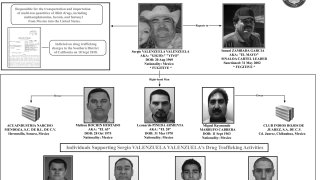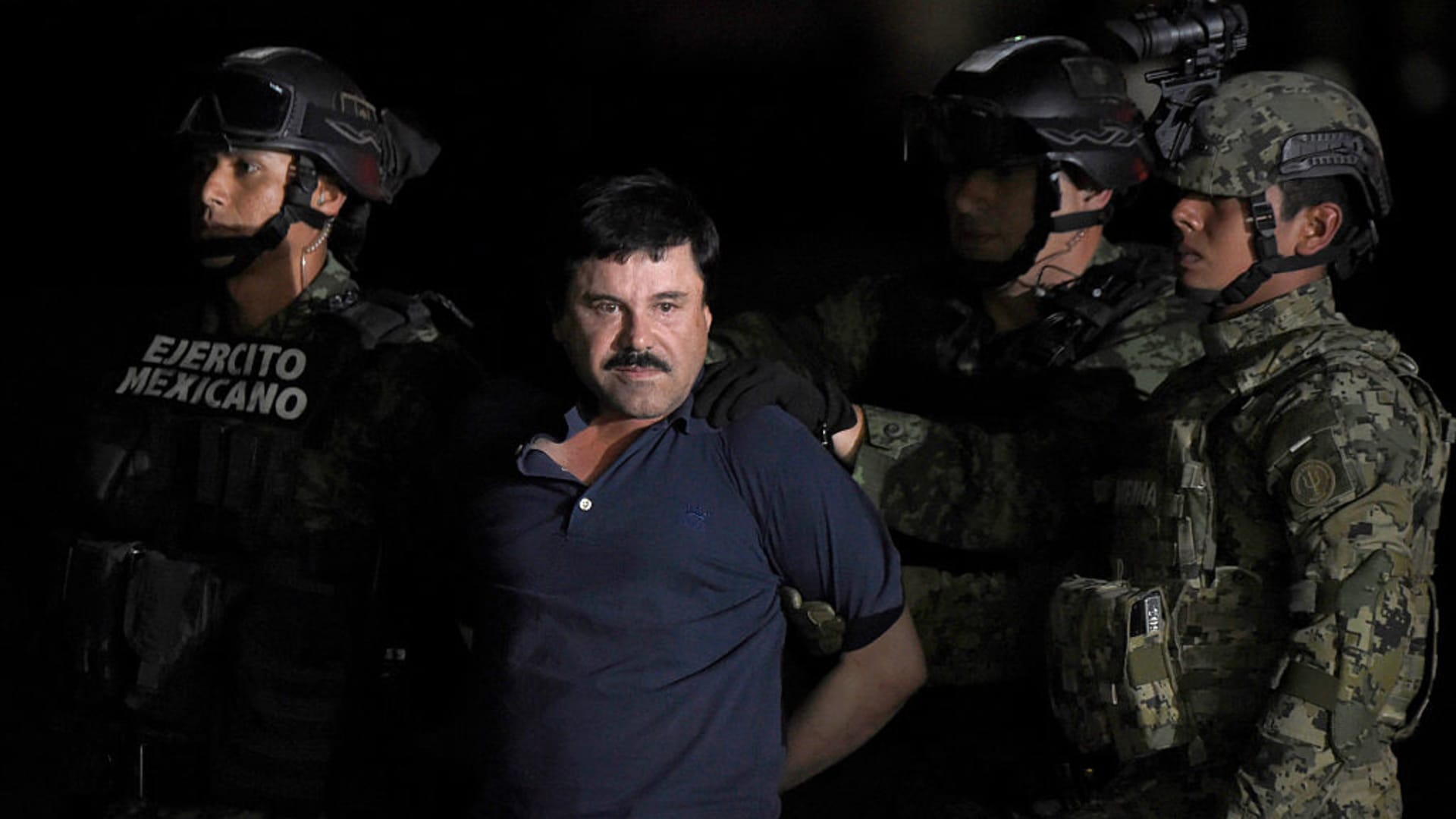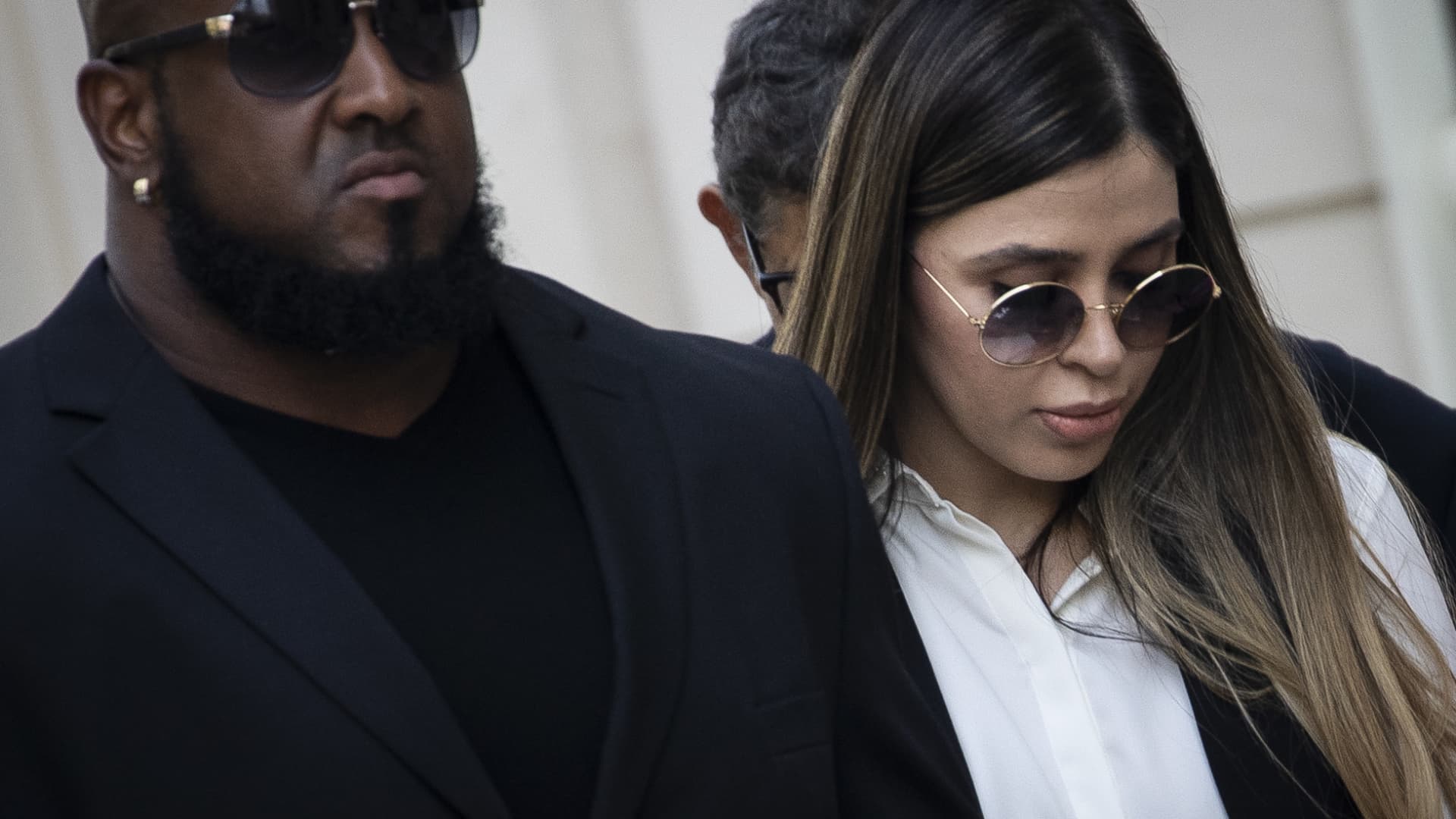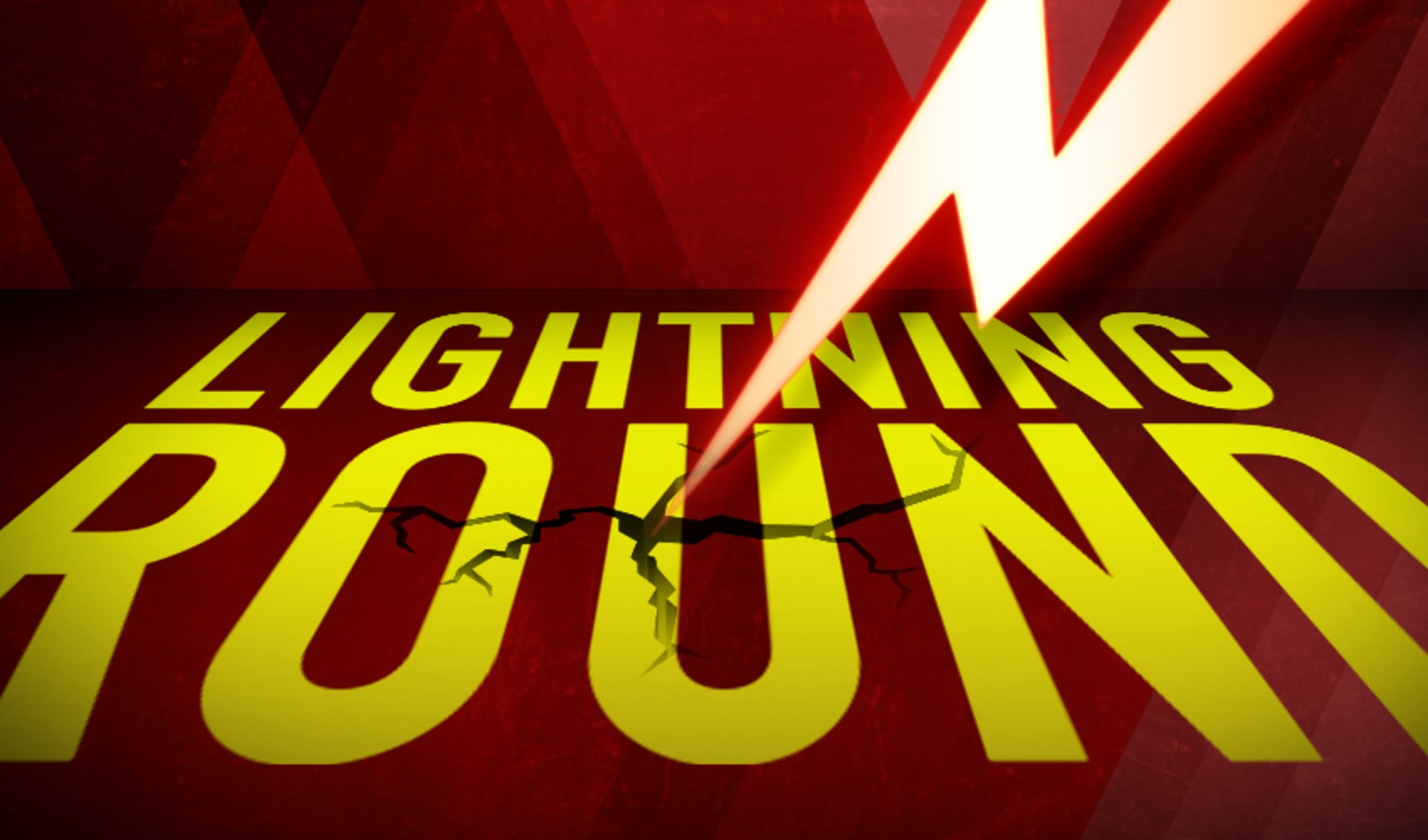
- The Biden administration imposed sanctions Wednesday on eight members of the notorious Mexican Sinaloa cartel.
- The cartel is largely recognized as the most powerful drug trafficking organization in the Western Hemisphere.
- The cartel, which is based in the city of Culiacan in northwest Mexico, was once led by Joaquin "El Chapo" Guzman, who is serving a life sentence in a U.S. federal prison.
WASHINGTON — The Biden administration imposed sanctions Wednesday on eight members of the notorious Mexican Sinaloa cartel, largely recognized as the most powerful drug trafficking organization in the Western Hemisphere.
The Treasury Department designated Sergio Valenzuela Valenzuela, 52, for his role overseeing a major drug trafficking corridor where "multi-ton quantities of illicit drugs including, methamphetamine, heroin and fentanyl" are smuggled from Mexico into the United States.
According to Treasury, Valenzuela reports directly to the current leader of the Sinaloa cartel, Ismael Zambada Garcia, also known as "El Mayo."
The Hurricane season is on. Our meteorologists are ready. Sign up for the NBC 6 Weather newsletter to get the latest forecast in your inbox.
"Treasury's action against Sergio Valenzuela Valenzuela demonstrates Office of Foreign Assets Control's (OFAC) commitment to targeting high-level Sinaloa Cartel operatives, particularly those who traffic or facilitate the delivery of synthetic opioids to the United States," wrote OFAC Director Andrea Gacki in a statement.
The cartel, which is based in the city of Culiacan in northwest Mexico, was once led by kingpin Joaquin "El Chapo" Guzman, who is serving a life sentence in U.S. federal prison for multiple crimes, including murder, kidnapping and conspiracy. Sinaloa's annual revenue was estimated to be as high as $3 billion in 2012, according to a nonpartisan research report from 2018.
Treasury on Wednesday also designated Valenzuela's right-hand man, Leonardo Pineda Armenta, and six cartel lieutenants: Gilberto Martinez Renteria, Jaime Humberto Gonzalez Higuera, Jorge Damian Roman Figueroa, Luis Alberto Carrillo Jimenez, Meliton Rochin Hurtado and Miguel Raymundo Marrufo Cabrera.
Money Report
Two companies in Mexico were also designated for being owned or controlled by cartel members, Acuaindustria Narciso Mendoza, S.C. de R.L. de C.V. and Club Indios Rojos de Juarez, S.A. de C.V.
El Chapo's legacy

The Sinaloa cartel controls wide swaths of Mexico's key drug-trafficking regions, particularly its southern border and Pacific coast. It also exerts its often-ruthless power along the southwestern U.S. border with Mexico, according to authorities. The cartel is allegedly responsible for waves of murders, kidnappings and assassinations.
Guzman, who was reputed to be a billionaire, pulled off a series of Houdini-like escapes from Mexican prisons beginning in 2001 and evaded capture for more than a decade.
In 2016, Guzman was arrested and later extradited to the United States. After a three-month trial, the drug kingpin was sentenced to life in prison on numerous charges.
Earlier this year, Emma Coronel Aispuro, Guzman's wife, was arrested by federal authorities at Dulles International Airport in Virginia on drug charges. She pleaded guilty in June to helping Guzman run the cartel. She is a dual citizen of the United States and Mexico.
Coronel, 31, a former beauty queen, has twin daughters with the Sinaloa cartel boss. She faces a minimum of 10 years in prison or a maximum of life in prison.

Previous sanctions
Last week, Treasury imposed sanctions on Zulma Maria Musso Torres, the infamous woman in charge of an international drug trafficking empire based in Colombia.
Musso Torres, 58, is said to control "strategically located maritime corridors in northern Colombia and collects a per kilogram tax from narcotics traffickers for protection and safe passage of multi-ton shipments of narcotics," according to a statement from Treasury.
Also known as "La Patrona" or "La Senora," Musso Torres oversees the logistics of transporting cocaine from Colombia to the United States, Europe, the Caribbean, Central America and Mexico.
Treasury also designated her two sons, Washington Antunez Musso and Juan Carlos Reales Britto, as well as her husband, Luis Antonio Bermudez Mejia, for providing material support to her narcotics organization.






